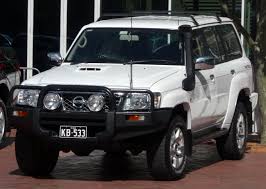记忆方法
将“patrol”拆分为“pat”和“roll”。想象巡逻队(patrol)像一本翻滚的书(roll),每一页(pat)都记录着巡逻的情况。这种方法通过形象化的联想帮助你记忆这个单词。
以上内容由AI生成, 仅供参考和借鉴
中文词源
patrol 巡逻
来自古法语patrouille,守夜,值勤,巡逻,来自pate,脚掌,脚底板,词源同pad,path.-ille,小词后缀。
英语词源
- patrol
-
patrol: [17] What is now a reasonably dignified term began life as a colloquialism meaning ‘paddle about in mud’. English acquired the word via German from French patrouiller, which originally denoted ‘tramp around through the mud of a military camp – when doing guard duty, for instance’. This was an alteration of Old French patouiller ‘walk or trample in mud’, a verb based on the noun patte ‘paw’.
Other English words which trace their history back to patte are patois [17] (which developed via the Old French verb patoier ‘trample on’, hence ‘treat roughly’, and originally meant ‘rough speech’) and patten ‘wooden shoe’ [14].
=> patois, patten - patrol (n.)
- 1660s, "action of going the rounds" (of a military camp, etc.), from French patrouille "a night watch" (1530s), from patrouiller "go the rounds to watch or guard," originally "tramp through the mud," probably soldiers' slang, from Old French patouiller "paddle in water," probably from pate "paw, foot" (see patten). Compare paddlefoot, World War II U.S. Army slang for "infantry soldier." Meaning "those who go on a patrol" is from 1660s. Sense of "detachment of soldiers sent out to scout the countryside, the enemy, etc." is attested from 1702.
- patrol (v.)
- 1690s, from patrol (n.) and in part from French patrouiller. Related: Patrolled; patrolling.
权威例句
- 1. Security forces remained on patrol until late into the night.
- 保安部队继续巡逻至深夜。
- 2. He hurried through the rain, to the patrol car.
- 他冒着雨急匆匆地跑到巡逻车前。
- 3. The men apparently opened fire after they were challenged by a patrol.
- 显然,那些人是在受到一支巡逻队的盘问后开的火。
- 4. I ask the mounted patrol to keep their eyes open.
- 我让骑警瞪大眼睛。
- 5. The bomb went off as a police patrol went by.
- 当一队巡警经过时,炸弹爆炸了。
